|
SENIORS, ELDERS, AND GRANDPARENTS DAY
CULTURAL RESOURCES
Sunday, September 8, 2013
Charles H. Smith, Cultural Resource Lectionary Team Member
Lection – Psalm 71:17-23
I. Historical Section
The African American Lectionary has already revisited historic aspects of black families honoring their elders, especially in 2012 in the Seniors, Elders, and Grandparents Day lectionary commentary written by Patricia Lesesne, particularly her Historical Background Section. So, I want to reach backwards to Africa and capture our tribal ethos of respecting and honoring our elders.
I also want to focus on the mission and role of the Black Church in advocacy and ministry as God's instrument of mercy to the elderly in their times of need. God's word of promise to our seniors has long held a central role in informing our values and consciousness from within, and at the very time withstanding oppression from without and the challenges one faces with advancing years.
An article in my book African American Jubilee Legacy Spiritual Odyssey summarizes the role of the Black Church in a couple of paragraphs on honoring the elderly.
African American's respect for the elderly reaches back to West Africa, where a tradition honoring elders survives to this day. The tradition holds that the oldest person's wisdom is to be respected. Respect for the elders holds society together. Our elders' rich experiences in life qualify them to become teachers and communicators of wisdom to younger generations. They are the guardians of our traditions and storytellers in our villages. Jubilee families provide space and freedom for their elderly to continue being instrumental in the life of the family.1
Anne Streaty Wimberly provides an excellent treatise on this subject in her book Honoring African American Elders: A Ministry in the Soul Community. Presiding Bishop Thomas L. Hoyt, Jr., Fourth Episcopal District of Louisiana and Mississippi, Christian Methodist Episcopal Church, indicates in his following book review of Wimberly's book that the African American tradition of honoring elders is alive and being practiced today in the contemporary life of the black church community.
A people's moral barometer is gauged by treatment of their children and the elderly. This book challenges urban and rural communities to honor their elderly through ministries governed by biblical, historical, spiritual, psychological, physical, pastoral, and socio-economic sensitivities. It advocates for the elderly to share their gifts and is a 20th century book which prepares communities to respond morally toward the elderly now and in the 21st century.2
The Role of Grandmothers and Grandfathers
In my book entitled Frederick Douglass: Fighter for Justice, there is a clear example of the role elders played in parenting their grandchildren while their mothers and fathers were sent out to work in the fields or ‘big house.’ His grandparents Betsey and Isaac Bailey, who provided him his moral and spiritual foundation for advocating justice for his enslaved brothers and sisters, reared Frederick Douglass, ‘the slave who became abolitionist.’3
Therefore, one should not be the least surprised that it was especially hard to squelch slaves’ methods of teaching their children. Parents had to work from “kin to can’t” (from sunup to sundown), but elderly grandparents were expected to care for and teach the small children. Until the children were old enough to work, there was plenty of time to listen to tales and take advantage of the pearl learning years. Days were long and hard, but the elderly were expected to do the typical honors with small children. Thousands of slave narratives attest to the fact that slave children were exceptionally well-trained in devious ways of coping with the masters and were instructed in Bible wisdom, prayer, and trust.
Grandfather Scipio paid the ultimate price for proclaiming God's Word. A true story of an elder slave proclaiming God to another generation follows.
Psalm 71:17-18
O God, from my youth you have taught me,
and I still proclaim your
Wondrous deeds.
So even to old age and gray hairs,
O God, do not forsake me,
Until proclaim your might
to all the generations to come.
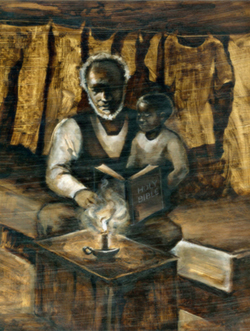
In his Walk Deep Like the Rivers (1978), Thomas L. Webber cites a tragic story that takes place during slavery and sheds light on the power of generational fatherhood. Facing threats from the enemy, and being led by God, a grandfather refused to be gripped by fear and threatened by the nightriders.
During slavery, “slaves known to have the ability to learn to read or write were severely whipped or threatened with the dismemberment of a finger or branding on the cheek as a sign to the other blacks of the fate awaiting those who would learn forbidden skills and as a signal to whites to keep the marked slaves separate from other blacks. Jamie Parker’s grandfather, Scipio, was put to death for attempting to teach Jamie to read and spell from the Bible.” 4
The unique importance of this story is manifested in myriad ways throughout African American and American history and culture. The tradition continues in the African American community where elders and grandparents remain the stabilizing force in families, especially considering the ‘new phenomena’ today where increasingly more grandparents have been forced to accept responsibility of rearing their grandchildren.
II. Terminology and Definitions
Demographical changes and evolving definitions over the past two generation suggest that we redefine and explore the terms seniors, elders, and grandparents in order the understand and respect their role in our modern culture. The following are working definitions with commentary for review and dialogue as plans to serve seniors with respect and dignity.
Aging
Although everyone is familiar with the aging process, defining it is not so straightforward. Aging can simply refer to the passage of time. But in our context, the aging process experiences moving into and through different developmental phases until “the gray hair phase” arrives on the physical side. On the spiritual side, a growing in grace brings about changes with God, the vital center of one’s core where life’s events and movements in relationships provide a greater meaning and depth as we face the following day-to-day realities such as bereavement, redefining one’s sense of purpose, shifting from roles into unfamiliar cultural generational environments, and physical and mental decline have fortified by experience God’s promises. Therefore, aging calls for a continual re-evaluation and reflection of one’s ultimate source of strength and hope of eternal life.5
Senior Citizen
Senior citizen is a common polite designation for an elderly person, and it implies or means that the person is likely retired and eligible to receive social security and/or a pension. It is also used instead of terms such as old person, old-age pensioner, or elderly, as a courtesy and to signify continuing relevance of and respect for this population group as “citizens” of senior rank.6
Elders
Advanced in years; people who are old collectively.7
Grandparents
The father or mother of either of one's parents. In today's demographic profile, this term does not necessarily reflect old age.
Sunset of life
The end of a cycle, a period of rest, renewal, and evaluation.
Spirituality and Health
Christian spirituality among people of color tends not to be abstract but deeply rooted in relationships and the community. Christian spirituality is viewed as an extension of the cross of Christ: vertically, through recognition of God's love, justice, and mystery and surrender to God's sovereignty; and horizontally, through the extension God's kingdom through compassion, sacrifice, and service in the world.8
Spirituality and Aging
The chosen Lectionary selection is overflowing with a context for experiencing spirituality as one ages. For as one ages, so should the concept of spirituality broaden as it leads one to assess their life and deepen their reflection about all of life.
III. Aging Issues
Aging issues are at the forefront of American discourse as budget cuts threaten Social Security, Medicare, and Medicaid. I relocated to Marietta, Georgia, in September 2012 from Wayne, New Jersey. This move required finding new physicians. To my discomfort, three out of four doctors refused taking me as a patient because they did not accept new Medicare patients. Upon consultation with my daughter and niece, both physicians, Medicare reimbursements in the south are so low that physicians are forced to limit their patient numbers to just a few. I was blessed when my niece and daughter found a physician for me. This is but one example of issues facing the elderly.
In 1998, my staff at the American Bible Society in New York City convened a ‘Think Tank’ composed of church leaders from across the country to review findings from a research project we had conducted entitled ‘Youth At Risk.’ Out of the ten findings one surfaced to the top—the need in their lives was for ‘meaningful relationships.’ One of the pastors from Baltimore, Maryland, asked the facilitator for an opportunity to speak. He thanked our team for sharing their finding on the plight of today’s youth. Then he recalled a recent seminar on youth in his church. An elderly member stood and asked, “I appreciate all of this talk about young people, but who knows and cares about our plight as old folks?” The ‘Think tank’ instantly substituted the word elderly for youth. The total population of the church was then assessed by age for consideration for future research.
The following are American Association of Retired Persons and the National Caucus and Center on Black Aged snapshot findings that further identify issues faced by seniors:
- Approximately 33% of black elderly live in poverty. Black elderly males experience a decline in their longevity.
- By 2020, 21% of people living in poverty are projected to be people of color. Yet most of the services provided to elders of color continue to be based on research and perceptions regarding the majority populations.
- Of the risk factors for black elderly who find themselves in a vulnerable position in our current mental health system, the most obvious are the complex stressors of racism and prejudice.
- More than half of black elderly in America are in poor health, which leads to higher rates of multiple chronic illnesses than the rest of the population.
- For black Americans, in particular, family is of primary importance. Family networks provide the main source of needed assistance later in life for many black elderly.
IV. Cultural Response
Jubilee Time
Maria Harris expanded the biblical concept of Jubilee demanding freedom and liberation for the seniors and elderly in her publication “Jubilee Times”:
Jubilee time is a spiritual space emerging as we cross the threshold and enter our latter years—‘a new space and place of maturity and wisdom, liberation and loss.’ With the first part of life over, Jubilee Time demands something new to be born embracing the Divine Mystery at the core of the universe. It is a place of new perception of age and aging. It celebrates a spirituality that reflects a walk of faith knowing by experience the God who blessed them to cross the threshold to Jubilee Time will be with them until they cross, yet another threshold into the eternal promised space.9
I, along with my sister Katie and brother Bill, am experiencing that exhilarating Jubilee Space of freedom by being used by God to tell stories about my family. From a family of eleven, only three of us are left to enjoy and celebrate Jubilee Time by preparing generations to come as to how their lives can be used as instruments of grace for the elderly, the poor, and homeless.
On the last Sunday of August 2012, I resigned as Senior Minister of the First Baptist Church of Madison, New Jersey, and currently do retreats and conferences. My sister Katie, after 47 years, is still the choir director of the Pilgrim Baptist Church in Lexington, Kentucky. My brother Bill is still fundraising for The Black Coalition in Lexington, Kentucky. All three of us are enjoying and sharing during the Jubilee Time of our lives.
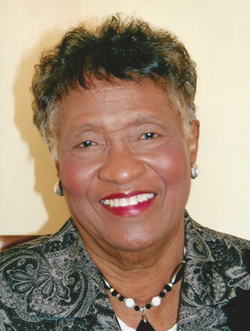
Kathryn Smith Stephens
"Katie"
Katie was born in 1935 in Lexington, Kentucky. Educated at Virginia Union University and Kentucky State University, she was the first African American licensed Nursing Home Administrator in Kentucky. She and her late husband, Dr. Herman Stephens, MD, were owner and operators of a nursing home for 30 years. Later, pursuing a new career, she became a licensed embalmer for Smith and Smith Funeral Home while assisting her late brother Rev. Horace Ray Smith, who was the funeral director. For the past 47 years, she has served as the pianist and choir director for the Pilgrim Baptist Church in Lexington, Kentucky, where her brother Horace was pastor for 60 years. Katie also writes and produces intergenerational plays. She is blessed with three daughters, three granddaughters, one grandson, and one great great granddaughter to enjoy during her Jubilee Time.
Kathryn dedicated “So Blessed” to her brother Rev. Dr. G. M. Smith, on his 50th Anniversary celebration as pastor of the Evergreen Baptist Church, Lexington, Kentucky, in June 1999. This poem tells much about our home life.
So Blessed
by Kathryn Smith Stephens
The house may have been sparsely furnished, but not bare
Clothes were not always new, but always spotless.
Food was indescribably delicious, with such abundance—
Cooked with such finesse, seasoned with such love.
So many children, but we were never compared with each other.
High expectations, but levied on individual capabilities.
That old fireplace could tell many stories,
As it illuminated the room with the old rocker.
The cracked hearth beckoned us at the close of day.
Providing the forum for many of life's lessons taught.
O, that blessed table with those mandatory bible verses—
So many Sunday afternoons, spent racking up miles
At those basket meetings.
Little did you know that the eagle was preparing you
To leave the nest, to take flight on your own.
They knew that the time would come, for you to face hardships,
And also receive the glories that you have experienced
Over the last fifty years and even before.
As you took flight, they did not worry, because they knew
That you had become acquainted with the Almighty.
They taught you that He and only He built the nest,
Watched over it, and would provide His arms to hold you.
They watched, as you took flight faltering at times,
Then faster, faster you flew.
They watched, as faith and trust, in front, charting your course
Behind, pushed you underneath, held you.
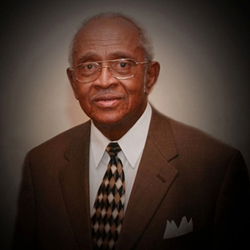
William Henry Smith
"Bill"
Bill was born in 1930 in the Zion Baptist Church parsonage on Mulberry Street in Georgetown, Kentucky. Following graduation from Dunbar High School in Lexington, he enrolled at Indiana University in Bloomington, Indiana. However, the Korean War interrupted his schooling. Bill honorably served his country for two years. Following his stint in the military, he returned to Indiana University, completed his degree, and prepared to become a teacher. But again, God had other plans.
There was a fledgling, segregated YMCA branch in Lexington in 1956. The assets of the branch were two pool tables, two desks, and two rooms. From time to time the branch drifted from old schools and dilapidated buildings. Bill Smith was “called” to lead that branch. Under Smith’s leadership, the branch was transformed into a first-class facility featuring a three-story dormitory for residents, a gymnasium, an Olympic-sized swimming pool, and a library, and he organized an YMCA Black Achievers Group. Under his leadership, the Second Street Branch YMCA was a tremendous source of pride for the African American community and a model for the nation with integrated staff and programming. He later became the Associate General Director of the YMCA of Central Kentucky.
Bill was a one-man gang, pouring all of his energy into giving African American kids their first camping experience and involving them in sporting events, leadership clubs, and social activities. In addition, he served as Sunday School Superintendent for over 40 years. He has been a Trustee at Shiloh for 30 plus years (now Trustee Emeritus). When Shiloh constructed an educational building in 1979, he was called on to organize and lead the campaign to pay off the mortgage.
In the spring of 1982, Bill attended a lecture institute at Simmons Bible College in Louisville, Kentucky. The theme was ‘The State of the Black Church.’ The featured preacher was the eminent Dr. William Augustus Jones, the late pastor of the Bethany Baptist Church in Brooklyn, New York. The lecture institute honored both Smith’s and Jones’s fathers, who were outstanding preachers. Bill Smith organized the Black Church Coalition of the Bluegrass following this event.

In 1983, at Bill's YMCA office, the Black Church Coalition of the Bluegrass was organized. Since that time, Bill continues to serve on a volunteer basis to coordinate fundraising for the organization. As of December 2012, over $2,015,00.00 has been raised from churches, individuals, and grants to provide rent and utility assistance to 19,917 families.
Although Bill retired from the YMCA in 1991, he continues using his Jubilee Time, along with community pastors, working with the Coalition in funding this project. Bill is a self-described “human relations facilitator” who continues to quietly and effectively serve his community as God leads him. He and his wife, Virginia, have been married for 58 years and they have three sons, two daughters-in-laws, and four grandchildren.
Whether helping remodel a church basement, organizing a program, or conducting a fundraising campaign, Bill Smith is guided by a set of simple yet profound principles:
“It is better to light a candle than to curse the darkness.”
“Give a man a fish and he eats for a day; Teach a man to fish and he eats for a lifetime.”
“Brighten the corner where you are.”
“I am my brother’s keeper.”
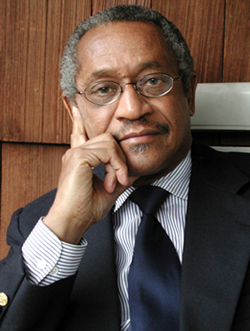
Charles Herbert Smith
"Charlie"
I was born in 1931 in the Zion Baptist Church parsonage on Mulberry Street in Georgetown, Kentucky. Following graduation from Dunbar High School in Lexington, I enrolled at Indiana University in Bloomington, Indiana. Blacks were not permitted to enroll in the University of Kentucky in 1949. My brother John later was admitted to Graduate School and became the first black Vice President. Because of his accomplishments, a new dormitory was named John T. Smith.
Looking back through life's rearview window, I am amazed at how much of my career was spent ministering to seniors. Last summer, my daughter Caroline and her friend drove with me from New Jersey to Lexington to visit my sick brother, Horace. The route took us through Huntington, West Virginia, where I was a pastor at the First Baptist Church for twenty years. We stopped at Rotary Garden, a 150-condo development for seniors and low-income families. The staff showed me the laundry room and game room for seniors. This housing complex was constructed under my leadership forty years ago. My senior ministry at that church also included two annual field trips with seniors, an elaborate intergenerational program with young adults that included drama, transportation, and dinner after church every 4th Sunday.
As Executive Director of a neighborhood anti-poverty program, I provided a neighborhood nurse to visit seniors weekly in the designated neighborhood and established the first Senior Citizen Center in the city.
My ministry at the First Baptist Church in Madison, New Jersey, included: Annual Thanksgiving Luncheon, an Oral Transmission Project, Carol's Garden Flower-Herb Club, and Senior's Bible Class, which I taught.
V. Songs That Speak to the Moment
Seniors’ apprehension as to “who is going to be with me until the end?” is a natural human emotion. As a senior, I have experienced losing 70% of the last congregation where I served as pastor. Eight of my siblings are deceased. Seniors wonder who will be there for me to the end. Jubilee Time prepares one to cross the final threshold knowing by experience the faithfulness of God. This is made plain through the song “Great Is Thy Faithfulness.”
Great Is Thy Faithfulness
by Thomas O. Chisholm; Tune by William M. Runyan
Great is Thy faithfulness, O God my Father,
There is no shadow of turning with Thee;
Thou changest not, Thy compassions, they fail not,
As Thou hast been Thou forever will be.
Refrain
Great is Thy faithfulness!
Great is Thy faithfulness!
Morning by morning new mercies I see.
All I have needed Thy hand hath provided;
Great is Thy faithfulness, Lord, unto me!
Summer and winter, and springtime and harvest,
Sun, moon and stars in their courses above,
Join with all nature in manifold witness,
To Thy great faithfulness, mercy and love.
Refrain
Pardon for sin and a peace that endureth,
Thine own dear presence to cheer and to guide;
Strength for today and bright hope for tomorrow,
Blessings all mine, with ten thousand beside!
Refrain10
Loneliness comes with the aging process. Although children and grandchildren may surround you, your childhood and adult friends are gone. This petition recognizes the sunset in life is setting and seniors now petition God to be resident with them as the blinds of life are gradually closing until they cross the last threshold. “God abides in those who confess that Jesus is the Son of God, and they abide in God” (1 John 4:15).
Abide with Me
by Henry F. Lyte; Tune by William H. Monk
Abide with me; fast falls the eventide;
The darkness deepens; Lord, with me abide;
When other helpers fail and comforts flee,
Help of the helpless, O abide with me.
Swift to its close ebbs out life's little day;
Earth's joys grow dim, its glories pass away;
Change and decay in all around I see;
O Thou who changest not, abide with me.
I need Thy presence ev'ry passing hour;
What but Thy grace can foil the tempter's pow'r?
Who, like Thyself, my guide and stay can be?
Through cloud and sunshine, Lord, abide with me.
I fear no foe, with Thee at hand to bless;
Ills have no weight, and tears no bitterness.
Where is death's sting? Where, grave, your victory?
I triumph still, if Thou abide with me.
Hold Thou Thy cross before my closing eyes;
Shine through the gloom and point me to the skies;
Heav'n's morning breaks, and earth's vain shadows flee;
In life, in death, O Lord, abide with me.11
There has been a short 56-page booklet in my library for years entitled The Will of God by Leslie D. Weatherhead. He speaks of God’s Intentional Will, God’s Circumstantial Will, God’s Ultimate Will, Discerning God’s Will, and In God’s Will Is Our Peace. In God’s peace we lose the fear of getting lost; the dread of carrying the responsibility of what has happened is removed because one has come through it all and can testify ‘God Will Take Care of You’ if you stay in His Will. “Cast all your anxiety on Him, because He cares for you” (1 Peter 5:7).
God Will Take Care of You
by Civilla D. Martin; Tune by W. Stillman Martin
Be not dismayed whate'er betide,
God will take care of you;
Beneath His wings of love abide,
God will take care of you.
God will take care of you,
Through every day, o'er all the way;
He will take care of you, God will take care of you.
Through days of toil when heart does fail,
God will take care of you;
When dangers fierce your path assail,
God will take care of you.
Through every day, o'er all the way;
He will take care of you, God will take care of you.
All you may need He will provide,
God will take care of you;
Nothing you ask will be denied, God will take care of you.
Through every day, o'er all the way;
He will take care of you, God will take care of you.
No matter what may be the test, God will take care of you;
Lean, weary one, upon His breast, God will take care of you.
Through every day, o'er all the way;
He will take care of you, God will take care of you.12
VI. A Memorable Learning Experience
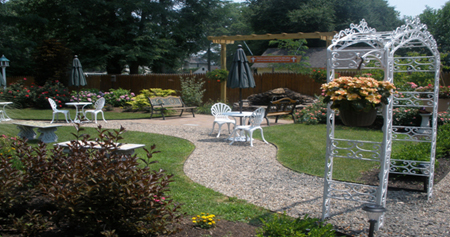
Carol's Garden
First Baptist Church of Madison
Our church ministry held a seminar for seniors on Five Wishes for a Living Will that provided them an opportunity to make ‘‘end of life’ decisions. Five Wishes lets your family and doctors know:
1. Who you want to make health care decisions for you when you can't make them.
2. The kind of medical treatment you want or don't want.
3. How comfortable you want to be.
4. How you want people to treat you.
5. What you want your loved ones to know.
Five Wishes meets the legal “end of life requirement declaration” in 42 states and is useful in all 50.
Shirley Hale, a devoted Sunday school teacher for fifty years, was present and answered all required questions and signed all necessary forms. Shirley was the only person living in her immediate and extended family. Her only son, Kip, a firefighter from California, had recently passed with heart failure after fighting a fire.
Out of respect and love for Shirley, the church planted a signature plum tree in its beautiful Carol's Garden. A statue of a fireman was placed beneath Carol's Garden, which is also home for a bird sanctuary, two fountains, fifty varieties of trees, rose bushes, perennials, and twenty varieties of annuals planted each spring.
During Shirley's last days on earth, a team of church angels tended to her daily needs. Upon her passing and to the surprise of us all, her final wish was to be cremated and her ashes spread in Carol's Garden beneath the plum tree dedicated to her son, Kip. I was conflicted by her final wish because the vision for the garden was a place for peace and repose for the living, not a cemetery. Being led by the Holy Spirit, I acquiesced and agreed to comply with her request.
The memorial service took place on a beautiful midsummer day. The sun was brilliant. One could hear the waterfalls from Carol and Joe's fountains, which were designed and constructed by an Italian master stonemason who was a member of the church. Flower annuals were in full bloom with their array of colors that competed with the fragrant rose bushes. Fifty arborvitae trees pointing to the sky lined the garden.
At the close of the Memorial Service, I led the procession of clergy and congregation out of the Sanctuary to the garden for the final Committal Service. When I uttered the words “Ashes to Ashes”and started to scatter them, a gush of wind lifted half of them from the vase and filled the whole garden, and birds flew from trees and splashed water in their basins. Someone spontaneously started singing. Truly God engaged nature to say, “Well done, Shirley, thou good and faithful servant. Thou hast been faithful over a few things, I will make thee ruler over many things: enter thou into the joy of thy lord” (Matthew 25:21, KJV). The song for this occasion could have been “I’ll Fly Away.”
I'll Fly Away
by Albert E. Brumley
Some glad morning when this life is over, I'll fly away;
To that home on God's celestial shore, I'll fly away.
I'll fly away, O glory, I'll fly away;
When I die, Hallelujah, by and by, and I'll fly away.
When the shadows of this life have gone, I'll fly away;
Like a bird from prison bars has flown, I'll fly away.
I'll fly away, O glory, I'll fly away;
When I die, Hallelujah, by and by, and I'll fly away.
Just a few more weary days and then, I'll fly away;
To a land where joys shall never end, I'll fly away.
I'll fly away, O glory, I'll fly away;
When I die, Hallelujah, by and by, and I'll fly away.13
VII. Recommended Reading
Baker, F.M. “Ethnic Minority Elders: Mental Health Research Agenda.” Hospital and Community Psychiatry, 1992, 43, 337–338, 342.
Brink, T.L. The Forgotten Aged: Ethnic, Psychiatric, and Societal Minorities. Binghamton, NY: Haworth Press, 1993.
Coogle, C.L., & R.B. Findley, eds. Assisting African American and Rural Families Dealing with Dementia. Richmond, VA: University of Virginia, Center on Aging: Dietz Press, 1994.
Gerontological Society of America. Minority Elders: Longevity, Economics, and Health; Building a Public Policy Base. Washington, DC: 1991.
Harel, Z., McKinney, E.A., & Williams, M., eds. Black Aged: Understanding Diversity and Service Needs. Newbury Park, CA: Sage, 1990.
Stanford, E.P., & F.M. Torres-Gil, eds. Diversity: New Approaches to Ethnic Minority Aging. Amityville, NY: Baywood, 1992.
Takaki, R. A Different Mirror: A History of Multicultural America. Boston, MA: Little, Brown, & Co., 1993.
VIII. Additional Resources
Agency
American Association of Retired Persons, Social Outreach and Support: 601 E. St., N.W. Washington, DC 20049; 202-434-2260
Books
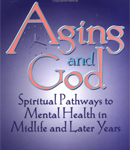 |
Harold G. Koenig, Aging and God. Binghamton, NY: The Haworth Pastoral Press, 1994. |
|
|
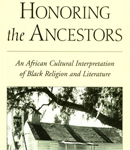 |
Donald H. Matthews, Honoring the Ancestors. New York, NY: Oxford University Press,1998. |
|
|
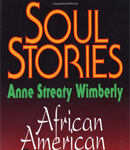 |
Anne Streaty Wimberly, Soul Stories. Nashville, TN: Abingdon Press,1994. |
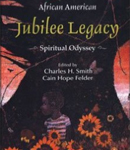 |
Charles H. Smith and Cain Hope Felder, African American Jubilee Legacy Spiritual Odyssey. Nashville, TN: Townsend Press, 2000. |
IX. References
Axelson, J.A. Counseling and Development in a Multicultural Society. Monterey, CA: Brooks/Cole Publishing, 1985.
Baker, F. “Dementing Illness and Black Americans.” In J.S. Jackson, ed., The Black American Elderly: Research on Physical and Psychosocial Health. New York: Springer, 1988.
Harper, M.S., ed. Minority Aging: Essential Curricula Content for Selected Health Problems and Health Professions. Washington, DC: U.S. Government Printing Office, 1990. DHHS Publication No. HRS P-DV-90-4.
Jackson, J.S., ed. The Black American Elderly: Research on Physical and Psychosocial Health. New York: Springer, 1988.
Manuel, R.C. “The Demography of Older Blacks in the United States.” In J.S. Jackson, ed., The Black American Elderly: Research on Physical and Psychosocial Health. New York: Springer, 1988.
Sue, D.W. Counseling the Culturally Different: Theory and Practice(2nd ed.). New York: John Wiley & Sons, 1990.
Notes
1. Smith, Charles H. & Felder, Cain H. African American Jubilee Legacy Spiritual Odyssey (Nashville, TN: Townsend Press, 2000), 271–272.
2. http://www.amazon.com/Honoring-African-American-Religion---Practice/dp/0787903515/ref=sr_1_1?s=books&ie=UTF8&qid=1372357518&sr=1-1&keywords=Honoring+African+American+Elders (accessed 27 June 2013).
3. Smith, Charles H. Frederick Douglass: Fighter for Justice. (Nashville, TN: Townsend Press, 2001).
4. Webber, Thomas L. Deep Like the Rivers: Education in the Slave Quarter Community, 1831–1865 (New York, NY: Norton, 1978).
5. See the essay “What Is Aging?” by Joao Pedro de Magalhaes, PHD, at http:www.swnescence.info/aging_definition.html.
6. www.ask.com/wiki/Senior_citizen
7. www.thefreedictionery.com/elderly
8. Musgrave, Catherine, Carol F. Allen, and Gregory J. Allen. Spirituality and Health, for Women of Color, APHA, April 2002.
9. Maria Harris, “Jubilee Times,” in Charles H. Smith and Cain H. Felder, African American Jubilee Legacy Spiritual Odyssey (Nashville, TN: Townsend Press, 2000).
10. Great Is Thy Faithfulness. By Thomas O. Chisholm. Tune, (FAITHFULNESS), by William M. Runyan. African American Heritage Hymnal. Chicago, IL: GIA Publications, 2001. #158
11. Abide With Me. By Henry F. Lyte. Tune, (EVENTIDE), by William H. Monk. African American Heritage Hymnal. #459
12. God Will Take Care of You. By Civilla D. Martin. Tune, (GOD CARES), by W. Stillman Martin. African American Heritage Hymnal. #137
13. I'll Fly Away. Text and Tune, (I'LL FLY AWAY), by Albert E. Brumley. African American Heritage Hymnal. #601
|